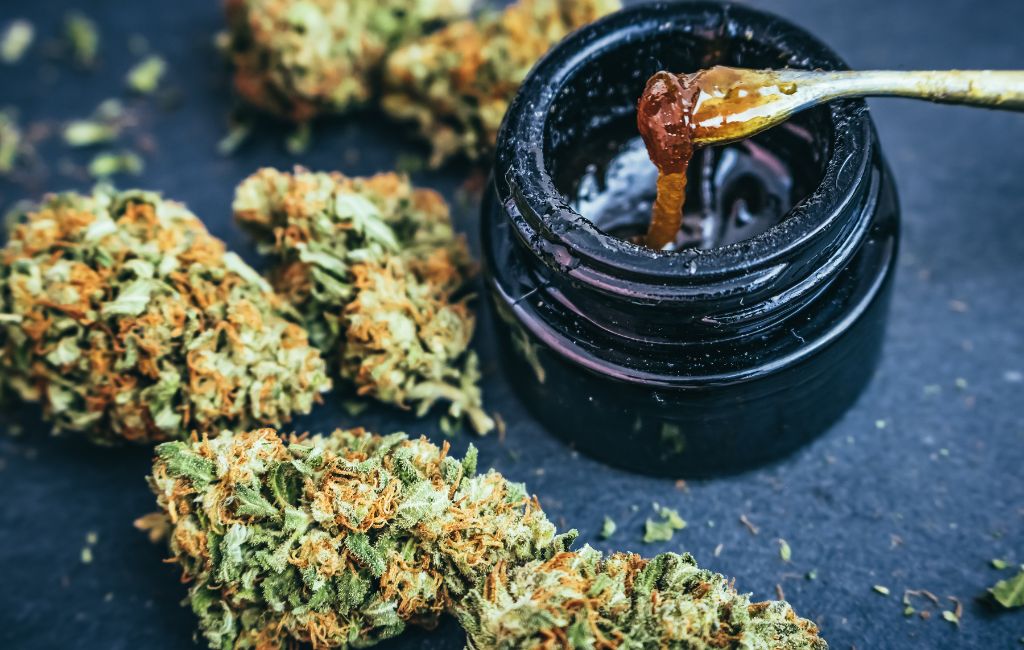THCa Flower: Untapped Potential of Raw Cannabis

THCa Flower: Unlocking the Untapped Potential of Raw Cannabis
Raw cannabis, particularly THCa flower, has been gaining attention for its potential health benefits and unique properties. Unlike its more famous counterpart, THC, THCa is non-psychoactive and offers a range of therapeutic effects. This article explores the untapped potential of THCa flower, its benefits, and how it can be incorporated into daily wellness routines.
Understanding THCa
THCa, or tetrahydrocannabinolic acid, is a cannabinoid found in raw cannabis plants. It is the precursor to THC, the compound responsible for the psychoactive effects of cannabis. When cannabis is heated through smoking, vaping, or cooking, THCa converts to THC in a process known as decarboxylation.
Non-Psychoactive Nature
One of the most significant aspects of THCa is its non-psychoactive nature. This means that consuming raw cannabis in the form of THCa flower does not produce the “high” associated with THC. This makes it an attractive option for individuals seeking the therapeutic benefits of cannabis without the mind-altering effects.
Health Benefits of THCa
Research into the health benefits of THCa is still in its early stages, but preliminary studies and anecdotal evidence suggest a range of potential therapeutic effects.
- Anti-Inflammatory Properties: THCa has shown promise in reducing inflammation, which can be beneficial for conditions such as arthritis and inflammatory bowel disease.
- Neuroprotective Effects: Some studies suggest that THCa may have neuroprotective properties, potentially helping to protect brain cells and improve cognitive function.
- Anti-Nausea and Appetite Stimulation: THCa may help alleviate nausea and stimulate appetite, making it useful for individuals undergoing chemotherapy or suffering from eating disorders.
- Pain Relief: THCa has been reported to provide pain relief, which can be beneficial for chronic pain conditions.
Incorporating THCa Flower into Wellness Routines
There are several ways to incorporate THCa flower into daily wellness routines. Here are a few methods to consider:
Juicing Raw Cannabis
Juicing raw cannabis leaves and flowers is one of the most popular methods of consuming THCa. This method preserves the cannabinoid in its raw form, allowing individuals to benefit from its therapeutic effects without experiencing psychoactive effects. Juicing can be done using a standard juicer, and the resulting juice can be mixed with other fruits and vegetables for a nutritious and health-boosting drink.
THCa Tinctures and Oils
THCa tinctures and oils are another convenient way to consume this cannabinoid. These products are made by extracting THCa from raw cannabis and suspending it in a carrier oil. They can be taken sublingually (under the tongue) or added to food and beverages. Tinctures and oils offer precise dosing and are easy to incorporate into daily routines.
Topical Applications
Topical products infused with THCa, such as creams and balms, can be applied directly to the skin. This method is particularly useful for targeting localized pain and inflammation. Topical applications allow for the benefits of THCa without any systemic effects, making them a great option for individuals who prefer not to ingest cannabis.
Case Studies and Real-World Examples
Several case studies and real-world examples highlight the potential benefits of THCa flower. For instance, a study published in the “Journal of Pain Research” found that patients with chronic pain who used THCa-rich cannabis reported significant reductions in pain levels. Another case study involving a patient with epilepsy showed that THCa helped reduce the frequency and severity of seizures.
In addition to these studies, many individuals have shared their personal experiences with THCa. For example, a patient with Crohn’s disease reported that consuming raw cannabis juice helped alleviate their symptoms and improve their quality of life. Another individual with multiple sclerosis found that THCa tinctures helped reduce muscle spasms and improve mobility.
Challenges and Considerations
While the potential benefits of THCa flower are promising, there are some challenges and considerations to keep in mind. One of the main challenges is the lack of extensive research on THCa. Most studies have focused on THC and CBD, leaving a gap in our understanding of THCa’s full potential.
Another consideration is the legal status of raw cannabis. In many regions, cannabis is still heavily regulated, and access to raw cannabis products may be limited. It’s important for individuals to be aware of the legal landscape in their area before incorporating THCa flower into their wellness routines.
Conclusion
THCa flower represents an exciting frontier in the world of cannabis. Its non-psychoactive nature and potential therapeutic benefits make it an attractive option for individuals seeking natural remedies for various health conditions. While more research is needed to fully understand its effects, the existing evidence and anecdotal reports suggest that THCa has much to offer. By exploring different methods of consumption, such as juicing, tinctures, and topicals, individuals can unlock the untapped potential of raw cannabis and enhance their overall well-being.